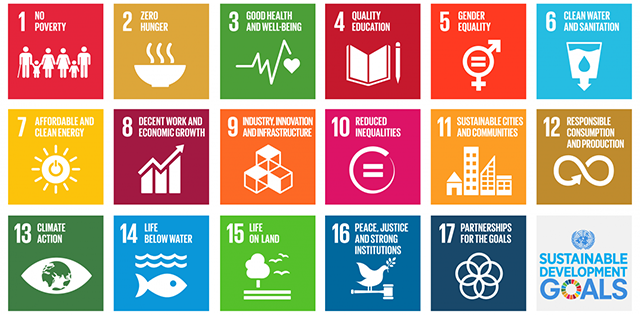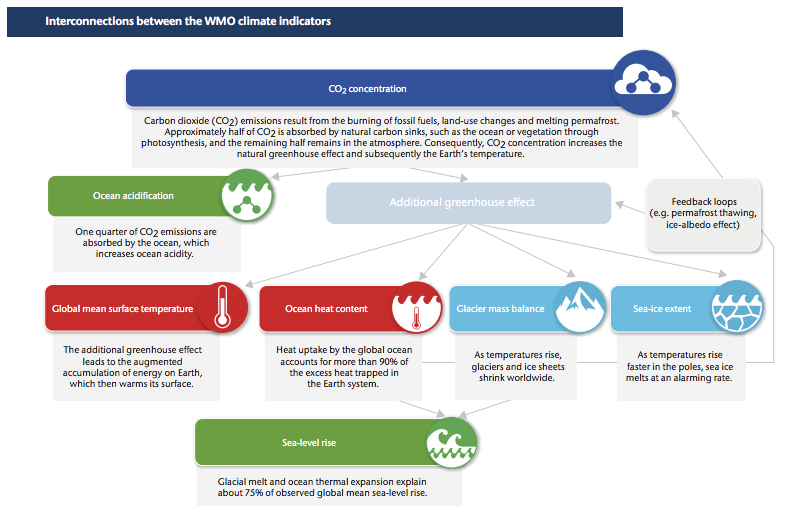Biodiversity & Environment
Report on Climate Indicators & Sustainable Development: WMO
- 25 Sep 2021
- 3 min read
Why in News
Recently, the World Meteorological Organization (WMO) has published a new report on Climate Indicators and Sustainable Development: Demonstrating the Interconnections.
- WMO studied seven climate indicators — carbon dioxide (CO2) concentration, temperature, ocean acidification and heat, sea ice extent, glacier melt and sea-level rise.
- Its release coincides with the United Nations General Assembly annual session and the opening in September 2021 of the Sustainable Development Goals (SDGs) Action Zone, which is dedicated to accelerating action on the SDGs.
Key Points
- Aim:
- To contribute to the sustainable development agenda and to inspire leaders to take bolder climate action.
- Importance:
- In the face of ongoing climate change, poverty, inequality and environmental degradation, understanding the connections between climate and international development is a matter of urgency.
- Increasing temperatures will result in global and regional changes, leading to shifts in rainfall patterns and agricultural seasons. The intensification of El Niño events is also generating more droughts and floods.
- Rising CO2 Concentration:
- The rising concentration of CO2 will impact all of the 17 United Nations-mandated SDGs.
- Rising CO2 concentration due to human activities is a key driver of global climate change.
- Impact on SDGs:
- Rising CO2 concentration and increasing global temperatures, if left unchecked, would negatively impact efforts to combat climate change under the SDG 13.
- This, in turn, would pose a significant threat to the achievement of the 16 SDGs other than SDG 13, by 2030.
- This would happen because uncontrolled rising CO2 emissions would be indirectly responsible for risks related to the remaining six climate indicators, namely temperature, ocean acidification and heat, sea ice extent, glacier melt and sea-level rise.
- For instance, rising concentrations of CO2 in the atmosphere will lead to reductions in nutrient content, affecting food security or the SDG indicator 2.1.2.
- This would affect the global goal on tackling poverty, SDG 1, as well.
- Rising CO2 in water would cause ocean acidification, directly affecting SDG indicator 14.3.1 which addresses marine acidity.
- Both food insecurity and loss of livelihood may drive conflicts related to resource management, thus threatening regional peace and stability (SDG 16.1).
- Extreme events attributed to rising temperature affect rainfall patterns and groundwater availability, which leads to a higher risk of water scarcity, directly affecting SDG 6 on access to water and specially the targets.
- Rising CO2 concentration and increasing global temperatures, if left unchecked, would negatively impact efforts to combat climate change under the SDG 13.
- Suggestions:
- To mitigate climate risks, the WMO recommended to work on:
- Improved education (SDG 4)
- Global partnerships (SDG 17)
- Sustainable consumption (SDG 12)
- To mitigate climate risks, the WMO recommended to work on:






